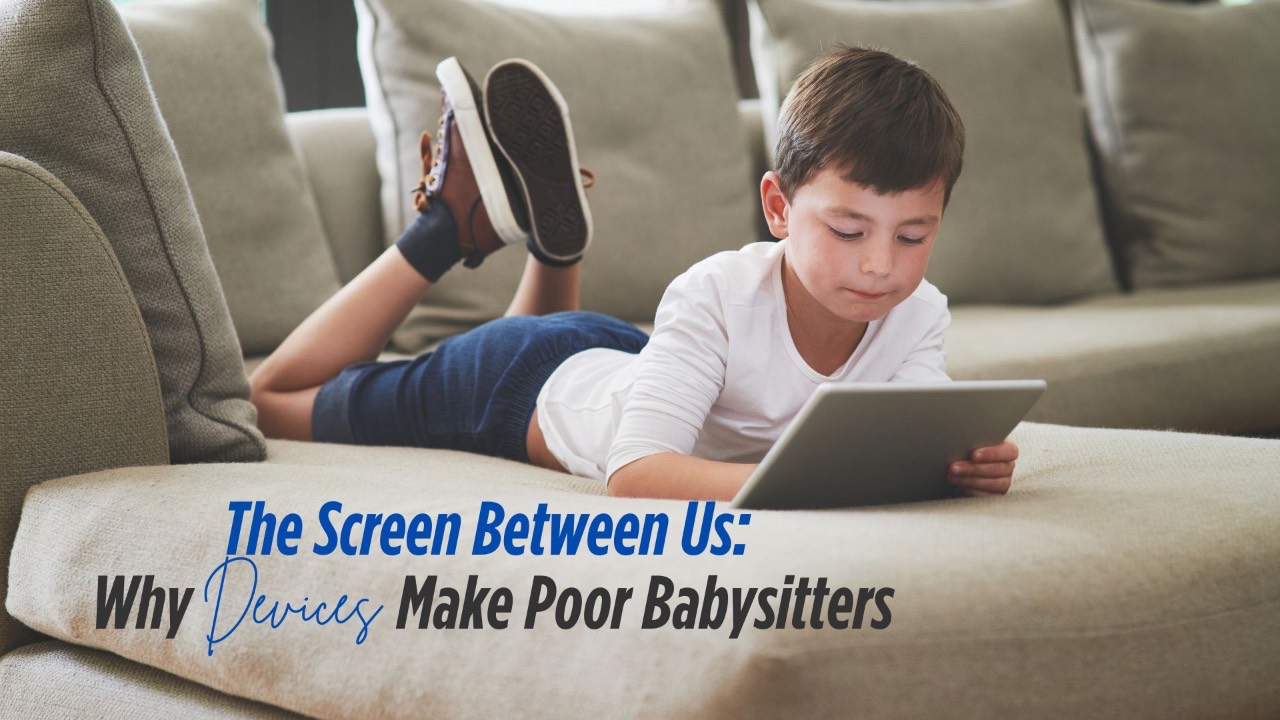The Screen Between Us: Why Devices Make Poor Babysitters
Jun 29, 2025
We’ve all done it.
Handed over the tablet to stop a tantrum. Let Netflix auto-play the next show so we could finish dinner. Handed over a phone just to get 10 quiet minutes.
This isn’t about shame. It’s about something deeper:
What happens when short-term survival mode becomes a long-term parenting strategy?
The truth is, we’re raising the most tech-saturated generation in history. And while devices offer convenience, distraction, and even education, they come at a cost we can’t ignore.
When Screens Become Stand-ins for Parenting
Screens are not the problem. Overuse is.
Too much screen time in early childhood can have lasting effects—on attention, mood regulation, sleep, and even language development. When screens replace interaction, conversation, and play, something critical is lost: relationship.
Parents often say, "But it's educational!" And sometimes, it is.
But no app replaces the emotional connection of eye contact, responsive conversation, or shared laughter.
When kids learn to self-soothe by scrolling, swipe through boredom, or avoid human interaction with headphones, they build habits that don’t disappear in adolescence. They get harder to break.
How It Shows Up Later
Here’s what I see in my work with teens and young adults:
- A 14-year-old who can’t sit through dinner without checking their phone
- A 17-year-old struggling to form deep friendships because they’re more fluent in emojis than emotions
- A college freshman panicking without access to a screen because it’s their only coping tool
These kids weren’t born like this. These are the results of habits built over years.
And often, these habits started with the best of intentions: keeping them safe, entertained, or quiet while we handled everything else.
But now it’s costing us.
So what can parents do?
Start by remembering this: you are not powerless. Even if your child is already in their teens, the relationship can be repaired. The patterns can be changed.
Here are three steps to begin:
- Reclaim shared time. Make meals, car rides, or a daily walk screen-free—no exceptions.
- Model what healthy screen use looks like. Your habits set the tone. Be honest about your own patterns and work on them together.
- Create "boredom-friendly" zones. Kids need space to think, imagine, and be. Not every quiet moment needs a screen. Let them feel it.
You don’t need to ban screens.
You need to put relationships back in front of them.
Because one day, your teen won’t remember the videos they watched. But they will remember whether they felt seen, heard, and known.
And that starts with you.
Want more strategies for navigating screen time and connection in the digital age?
Check out this episode on the 4 Peaks Parents Podcast. Where we dive deep into screen time.
Be well & have courage,Thomas M. Miller, LICSW
